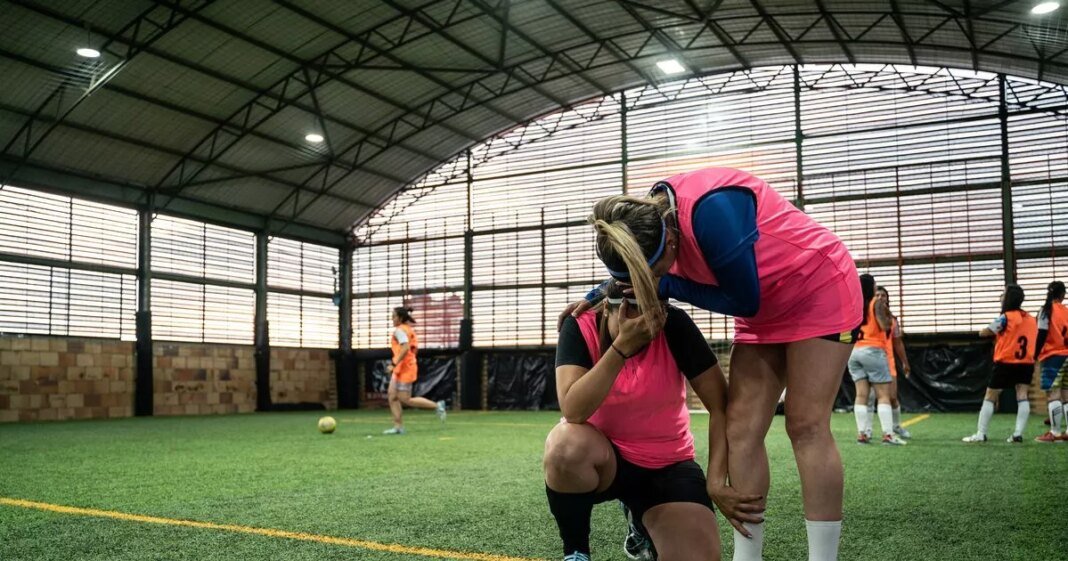A recent survey has uncovered that more than a third of individuals in the UK who wear glasses confess to engaging in sports without clear vision. The study, which involved 2,000 adults with varying degrees of eyesight issues, revealed that 42% have experienced misjudgments or mistakes while participating in sports without their glasses. Shockingly, one out of every ten respondents has suffered injuries as a result of their impaired vision.
Interestingly, over half (52%) of those surveyed opt not to wear their glasses during sports activities due to concerns about potential breakage, while 44% fear their glasses might fall off during exercise, and 32% find that perspiration causes them to slip. Additionally, only 37% feel confident that their glasses will remain secure during physical activity, with 29% feeling that their glasses hinder their enjoyment of sports.
The research also highlighted that a third of respondents have encountered anxiety while wearing glasses in active or risky situations, where the glasses could potentially fall off. Giles Edmonds, the clinical services director at Specsavers, the organization behind the survey, emphasized the prevalence of this issue, stating that glasses are more susceptible to damage in sports environments, leading individuals to forego wearing them altogether.
Common consequences of glasses being damaged during physical activities include broken or bent frames, scratched lenses, and damaged arms. Surprisingly, the study revealed that 64% of respondents have experienced some form of damage to their glasses outside of sports, with common causes including accidentally dropping them, sitting on them, or falling asleep while wearing them.
Of those who have encountered damage, 69% have attempted DIY repairs such as replacing screws, bending frames, or using superglue, although 42% admitted that their efforts were unsuccessful. Giles Edmonds recommended contact lenses as a more suitable option for maintaining clear vision during sports, highlighting their advantages over glasses in terms of peripheral vision, fogging, slipping, and breakage risks.
In conclusion, daily disposable contact lenses were specifically recommended for sports activities due to their hygiene, ease of replacement, and compatibility with fast-paced environments.



